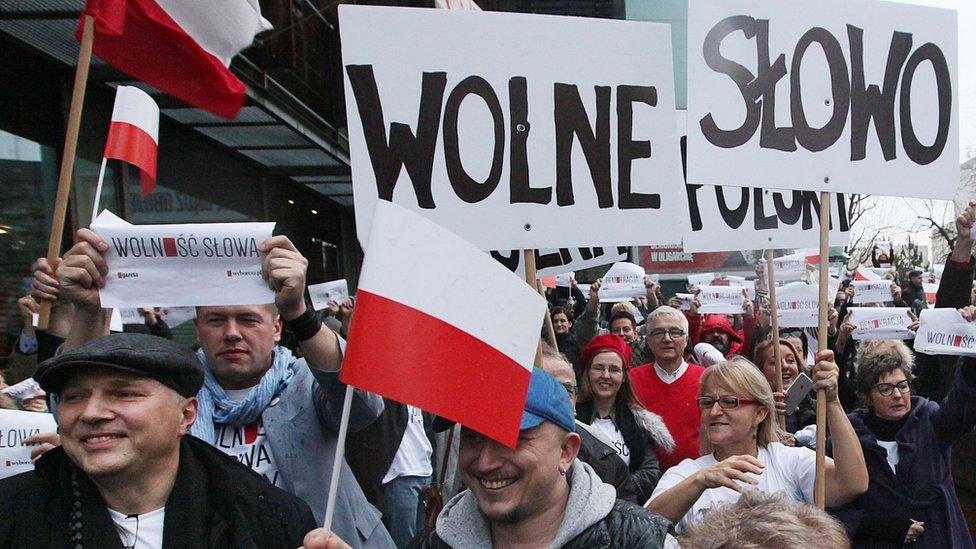Poland press freedom: Demonstrations continue for third day
- Published
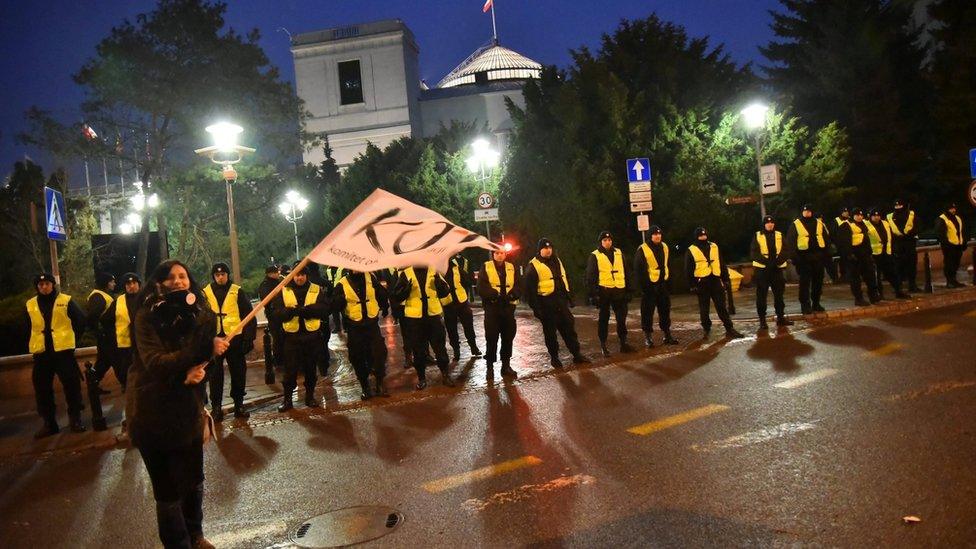
Police kept protesters away from the parliament building on Sunday
Protests in the Polish capital Warsaw against government plans to restrict journalists' access to parliament have continued for a third day.
Protesters gathered outside parliament, where opposition MPs have been holding a sit-in since Friday.
Government supporters also held a demonstration in Warsaw.
Polish President Andrzej Duda, who is aligned with the governing party but has offered to mediate, held meetings with opposition party leaders.
After the talks, opposition leaders said they had demanded the proposed press restrictions be dropped and they also called for the parliamentary vote on next year's budget to be held again.
Opposition MPs were left furious on Friday when, amid a blockade of the main hall, the vote on next year's budget was held by pro-government MPs in a smaller hall with the press excluded.
"The president has asked for a legal analysis relating to the part of the parliamentary session," Mr Duda's spokesman, Marek Magierowski, said.
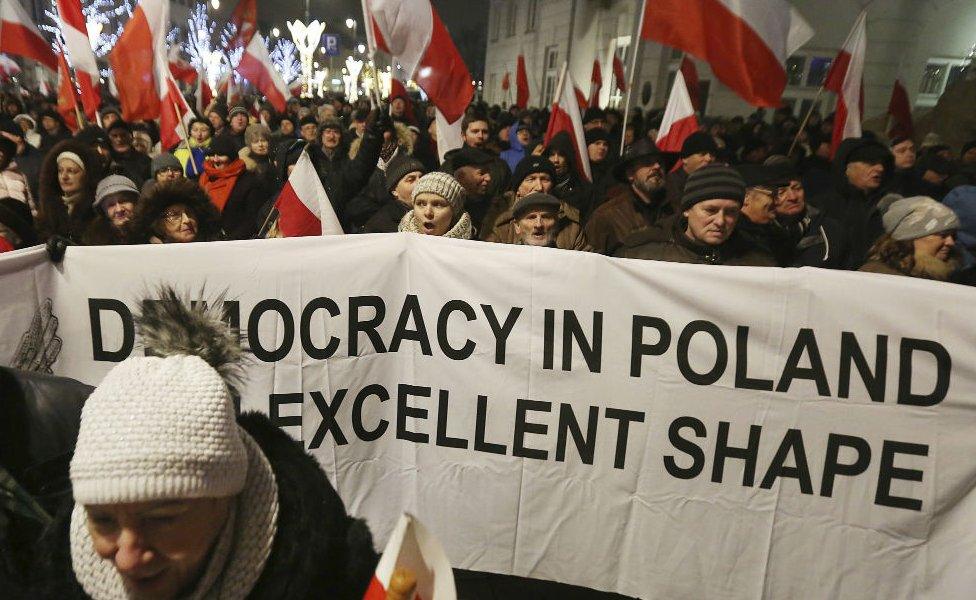
Pro-government supporters also staged a rally in Warsaw
Mr Duda is to hold to talks on Monday with the head of the governing Law and Justice (PiS) party Jaroslaw Kaczynski and the president of the lower house of parliament, Marek Kuchcinski.
The BBC's Adam Easton in Warsaw says many protesters are concerned not just about media freedom, but what they call systematic attempts by the government to roll back democratic rights.
On Saturday, journalists held a meeting with the speaker of the upper house of parliament to discuss the new rules.
Although no breakthrough was made at the talks, there were signs that a compromise deal may be reached after another meeting was scheduled for Monday.
Polish Prime Minister Beata Szydlo, in a televised address, has said the blockade on parliament in protest at the new rules by opposition MPs was "scandalous".
She said people were free to protest, but had to respect the views of others.
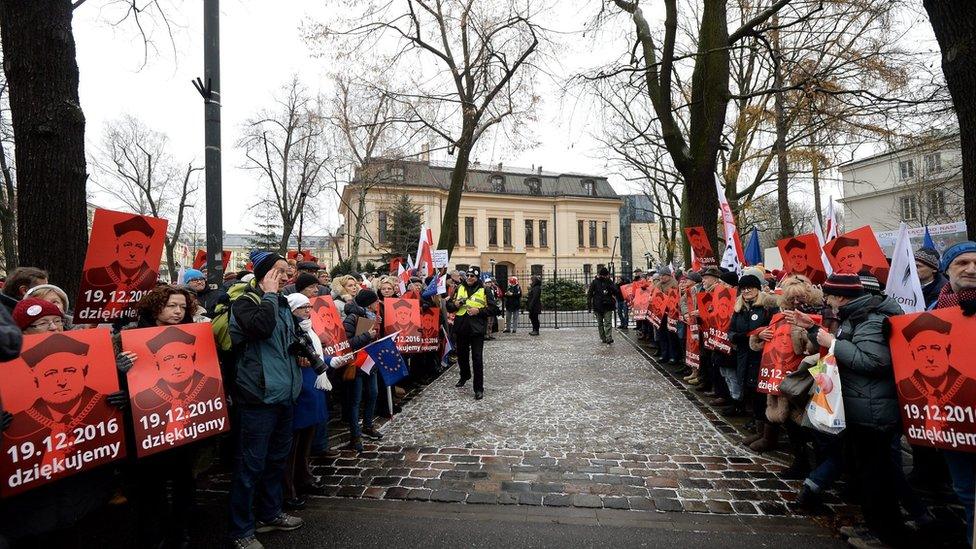
Protesters support the work of the Constitutional Court amid government protests to reduce its powers
Opposition MPs say the PiS is trying to stifle press freedom with its plans to limit the number of reporters allowed to cover parliament.
As well as the number of journalists permitted to enter the parliament building being restricted, only five selected Polish TV stations will be allowed to record or broadcast parliamentary sessions.
The government said it did not believe that the measures were restrictive.
Some opposition supporters have also marched outside the Constitutional Court, showing appreciation of its work.
The PiS has been trying to curtail its powers, drawing criticism from Poland's European Union partners.
Crowds blocked the entrance to the Polish parliament late on Friday evening
- Published6 October 2016
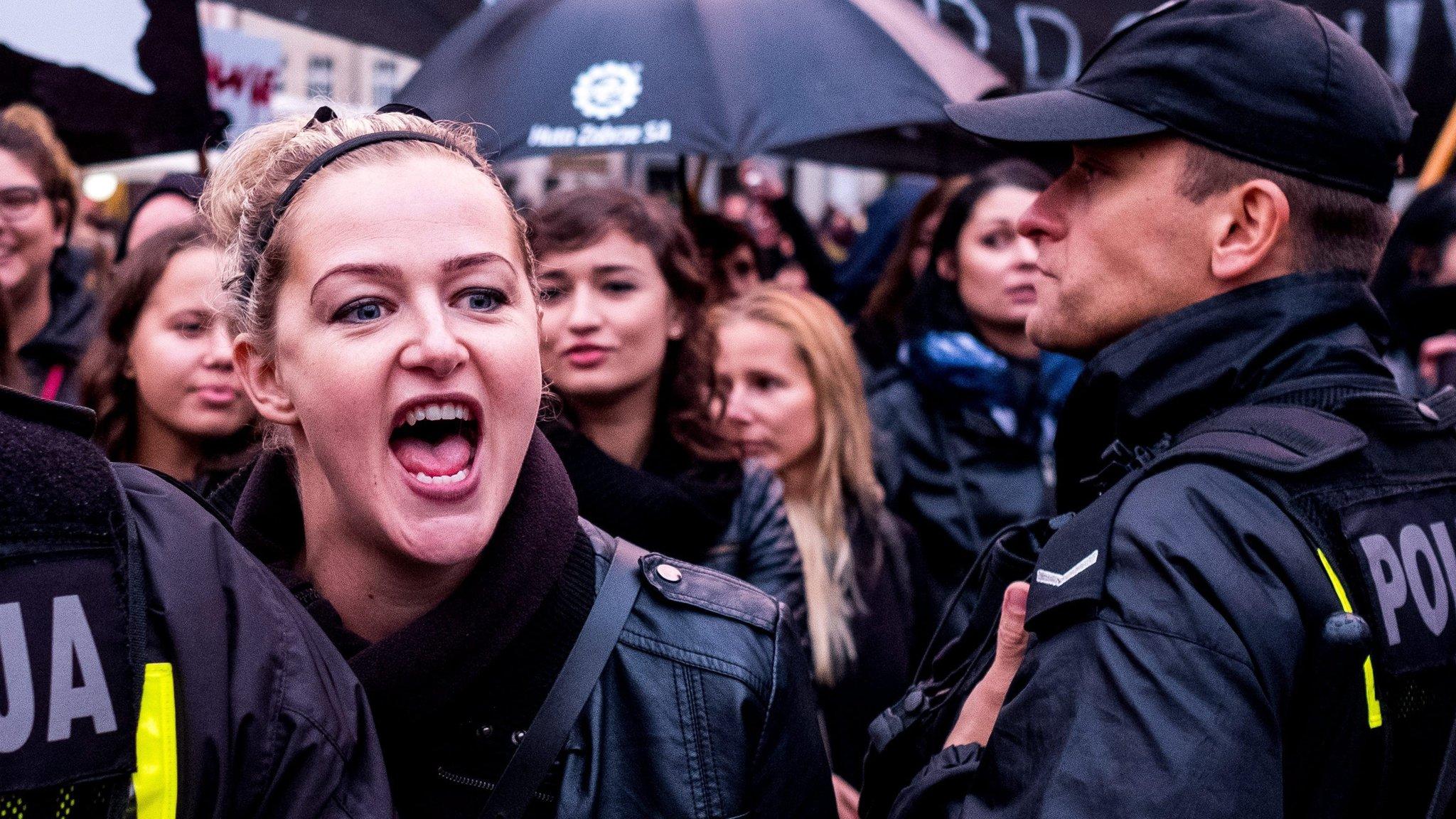
- Published9 March 2016
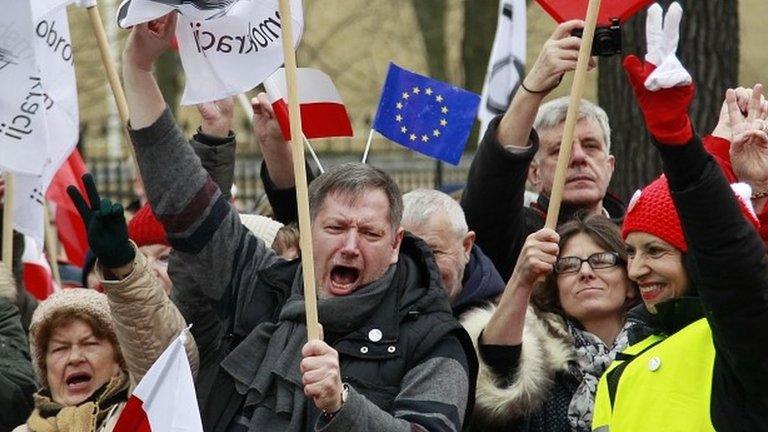
- Published7 January 2016
